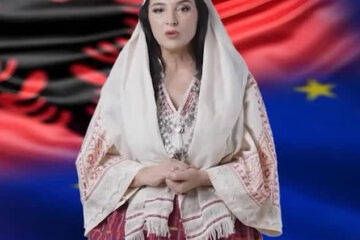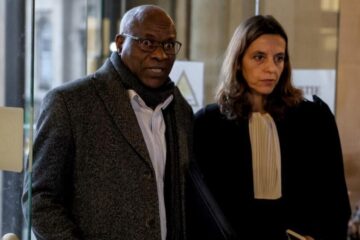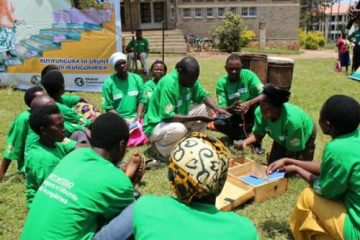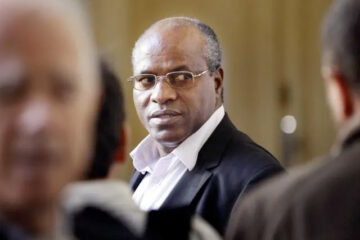Laurent Bucyibaruta, on trial before the Paris Assize Court, has consistently denied any involvement in the genocide against the Tutsi, maintaining his stance until the very end. His defense team has entirely rejected the accusations, instead attributing responsibility to the French and Belgian armies, which they claim prioritized saving white citizens over intervening to protect the Tutsi population.
During his plea, defense lawyer Me Biju-Duval argued that Bucyibaruta held limited power during the genocide. He described his client as a “prefect in name only,” asserting that real authority rested with the armed forces, over which Bucyibaruta had no control.
Bucyibaruta defended his decision to direct people to Murambi, claiming it was intended to ensure the safety of refugees. He explained, “The barriers were erected on the initiative of the Ministry of Defense (MINADEF). Their purpose was to monitor infiltrations, as there had been a brutal war with Ugandan soldiers of Rwandan origin since 1990.” He added, “I could not dismantle the barriers set up by MINADEF. Opposing this decision would have branded me an accomplice of the RPF.”
Regarding the water supply cut in Murambi, Bucyibaruta stated, “I was informed that the pipe had been repaired. Decisions were made in Kigali, and information also came from the capital.” He emphasized that the events were beyond his control, saying, “The only force we could rely on was the gendarmerie, but part of it had allied with the killers. I was overwhelmed. What would you have done in my place? I did what I could. I had no means to do more.”
Bucyibaruta further claimed that the massacres in Gikongoro were carried out by rogue gendarmes under the command of Sebuhura, who reportedly answered to no one at the time. This, he argued, left him powerless to intervene or save the Tutsi.
Defense Acknowledges Genocide but Denies Client’s Involvement
While the defense does not dispute the existence of the 1994 genocide against the Tutsi, acknowledging that it was meticulously orchestrated by the government, they argue that there is no evidence linking Bucyibaruta to the atrocities.
Bucyibaruta faces charges of genocide, complicity in genocide, and crimes against humanity for events that occurred in Gikongoro Prefecture, where he served as prefect. The charges specifically relate to incidents at Kibeho Catholic Church, ETO Murambi, the Catholic churches of Cyanika and Kaduha, Gikongoro Prison, and the School of Letters in Kibeho (Marie Merci).








